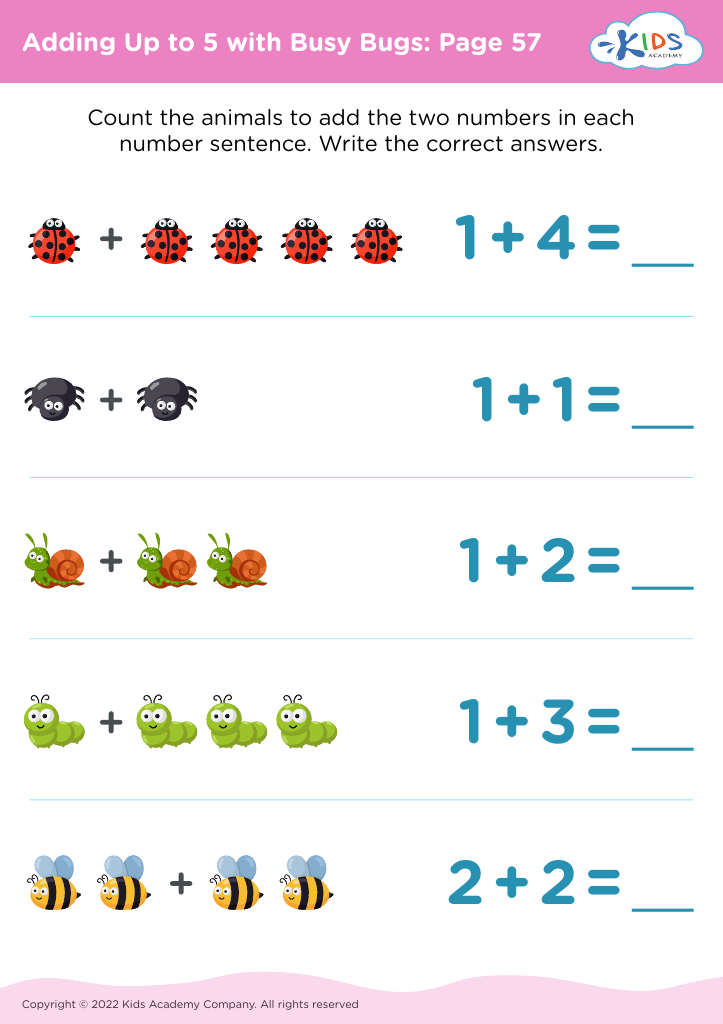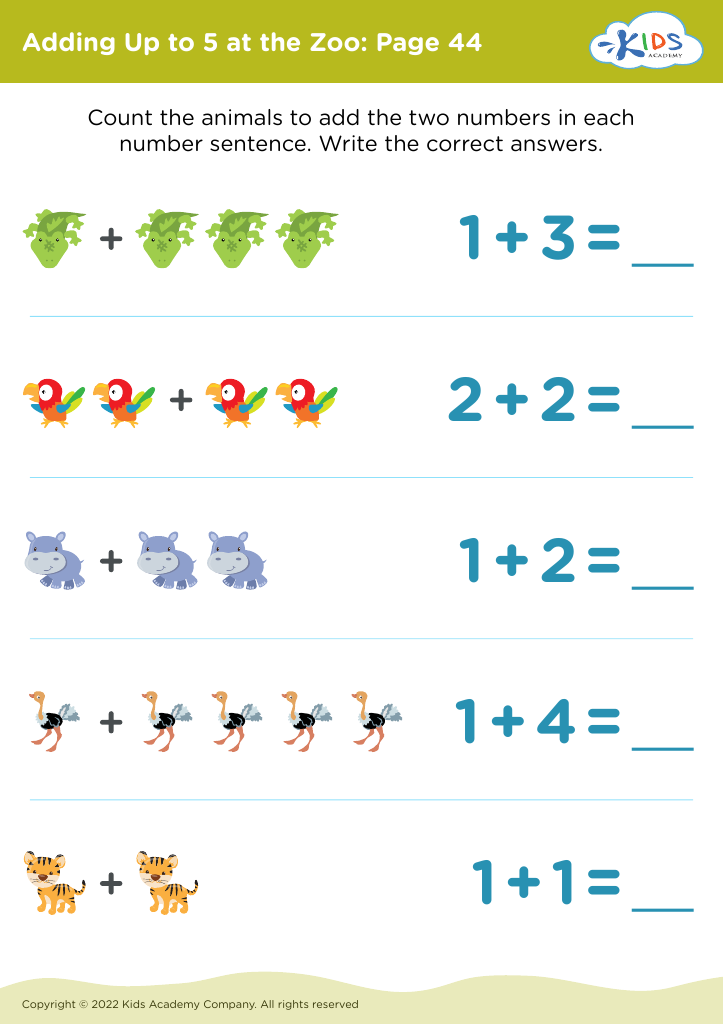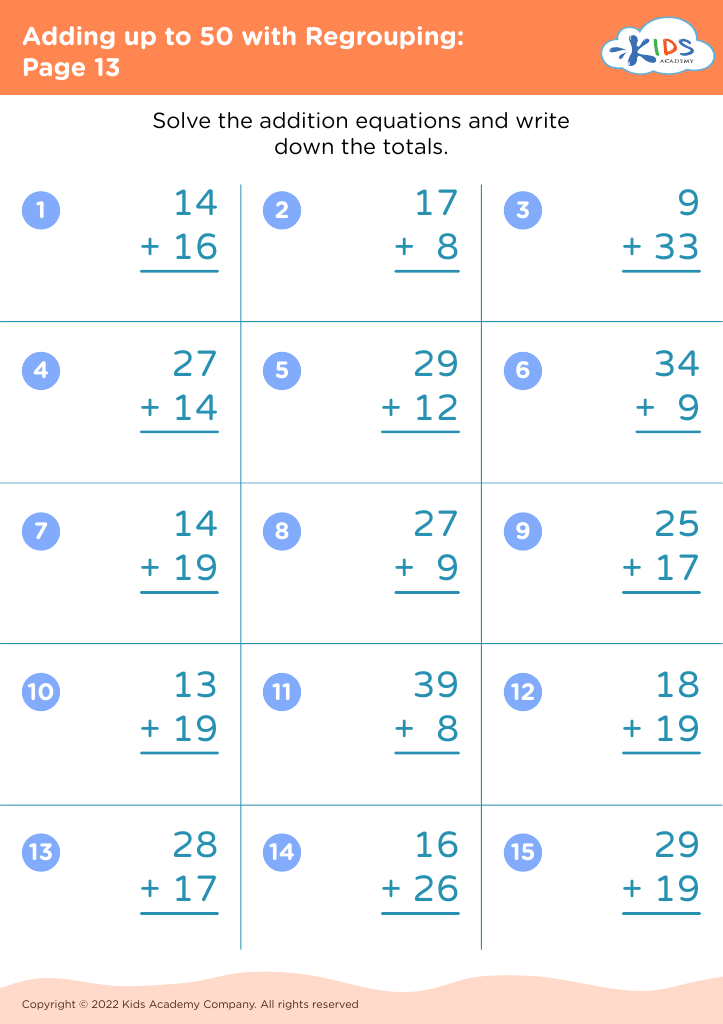Basic math learning Math Worksheets for Ages 5-8
3 filtered results
-
From - To
Unlock your child's potential with our Basic Math Learning Worksheets designed for ages 5-8! These engaging and interactive resources aim to build a strong math foundation through fun activities and worksheets. Designed by educators, our materials cover essential skills such as addition, subtraction, and number recognition. With vibrant illustrations and age-appropriate challenges, children will enjoy developing their math abilities while boosting their confidence. Perfect for both classroom use and at-home learning, our worksheets cater to diverse learning styles and ensure comprehensive skill development. Explore our collection today and watch your child thrive in their early math journey!
Basic math learning for children aged 5-8 lays the foundation for their future academic and life success. During these formative years, children develop critical thinking, problem-solving skills, and cognitive abilities through hands-on experiences with numbers and mathematical concepts. As parents or teachers, understanding the significance of early math education is essential because it directly impacts children's confidence and attitude towards learning.
Strong basic math skills not only help children in school but also equip them with essential life skills like budgeting, cooking, and measuring. Early exposure to math concepts promotes logical reasoning and enhances memory retention, influencing how they approach more complex mathematical challenges in later grades.
Moreover, supporting children in math encourages perseverance and resilience, especially when they encounter challenges. Equipping them with strategies to solve problems fosters a growth mindset, teaching them that effort and practice lead to improvement.
Finally, parental and teacher involvement in early math education helps children feel supported and valued, making learning a positive experience. In an increasingly data-driven world, ensuring that children build a solid math foundation is crucial for their adaptability and success in a variety of fields, thereby benefiting their long-term academic journey.
























